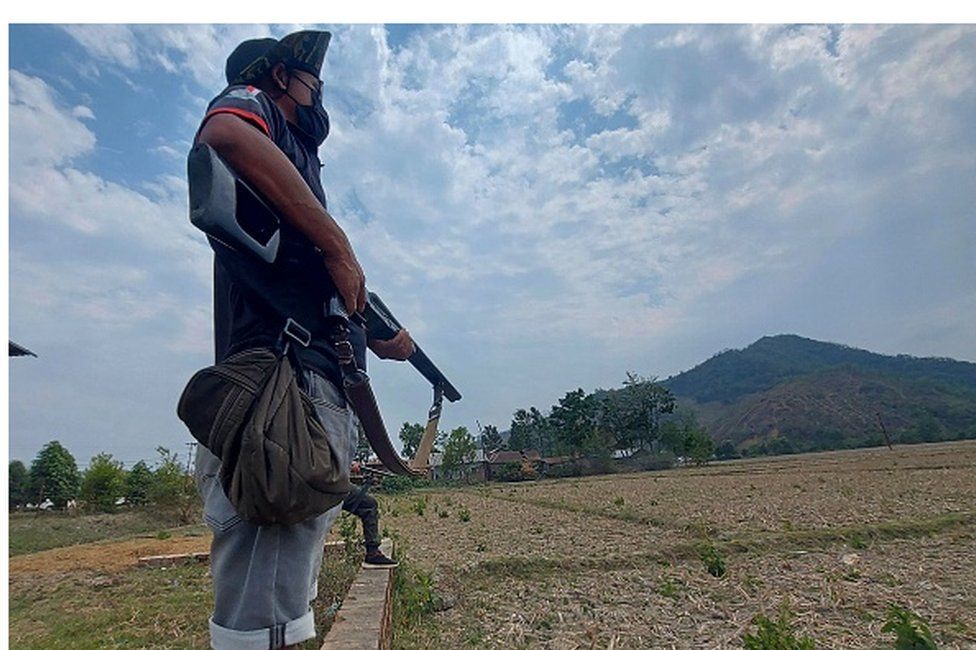Earlier this week, a retired lieutenant general in the Indian army lamented the unrest in his home state of Manipur, which is located in the nation's violent northeast.
L Nishikanta Singh tweeted, "The state is now "stateless.". "Like in Libya, Lebanon, Nigeria, Syria, etc., life and property can be destroyed at any time by anyone. " .
Manipur is teetering on what many see as the onset of a civil war, nearly two months after it was rocked by ethnic violence. More than 100 people have been killed and more than 400 injured in clashes between the Kuki and Meitei communities, which make up the majority. A total of 350 camps are now home to nearly 60,000 displaced people.
The violence is being combated by about 40,000 security personnel, including police, paramilitaries, and army soldiers. Only 25% of the more than 4,000 weapons that mobs stole from police armories have been voluntarily turned back since the violence started.
With both sides accusing security forces of being biased, the level of mistrust between the warring communities has increased. Mobs have damaged or destroyed over 200 churches and 17 temples. Ministers and lawmakers from the area have had their homes attacked and set on fire. .
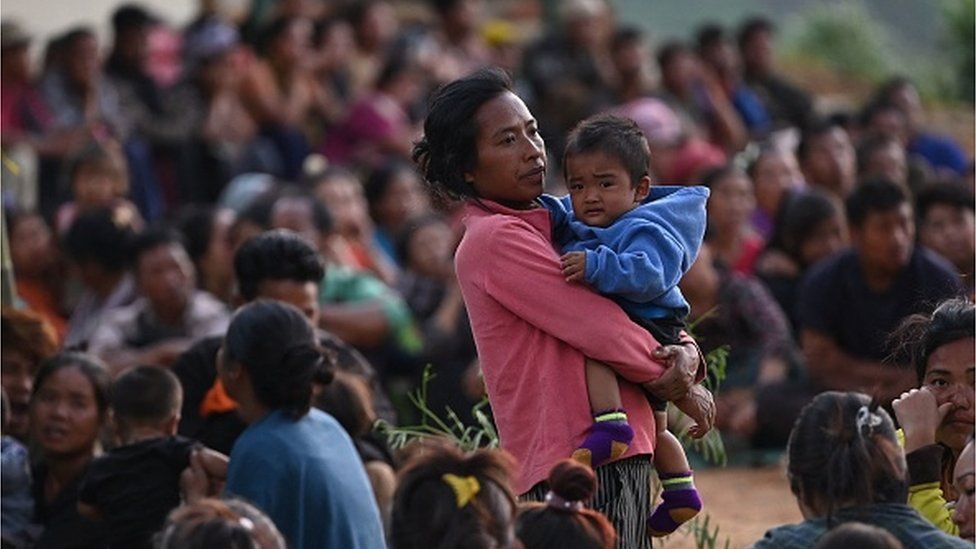
Normal life has been severely restricted; a night curfew is still in effect in the majority of the 16 districts; schools are closed; and internet services have been shut down. Protesters have blocked a major supply-transporting highway. Murders and arson occur infrequently. Response to the federal government's proposal for a peace panel to mediate a cease-fire has been muted.
According to Binalakshmi Nepram of the Northeast India Women Initiative for Peace, this is the darkest period in Manipur's history. "Homes were set on fire, and people were lynched, burned, and tortured in just two days [after the violence started]. Violence of this magnitude and nature has never before occurred in Manipur. ".
About 45 million people from more than 400 different communities live in India's troubled and remote north-eastern region. Peace negotiations involving 17 rounds have been ongoing for years in an effort to mediate between various groups in the region. Manipur, which is nestled along the Myanmar border, is no stranger to racial conflict.
The state is extremely diverse—and incredibly divided—with about 36 different ethnic tribes. About 40 insurgent groups call it home. In protest against contentious anti-insurgency laws like the Armed Forces Special Powers Act (AFSPA), which gives the security forces the right to search and seize property, Meitei, Naga, and Kuki rebels have frequently targeted Indian security forces with protracted armed campaigns. Militias from the Meitei, Naga, and Kuki have also clashed over divergent demands for their homeland.
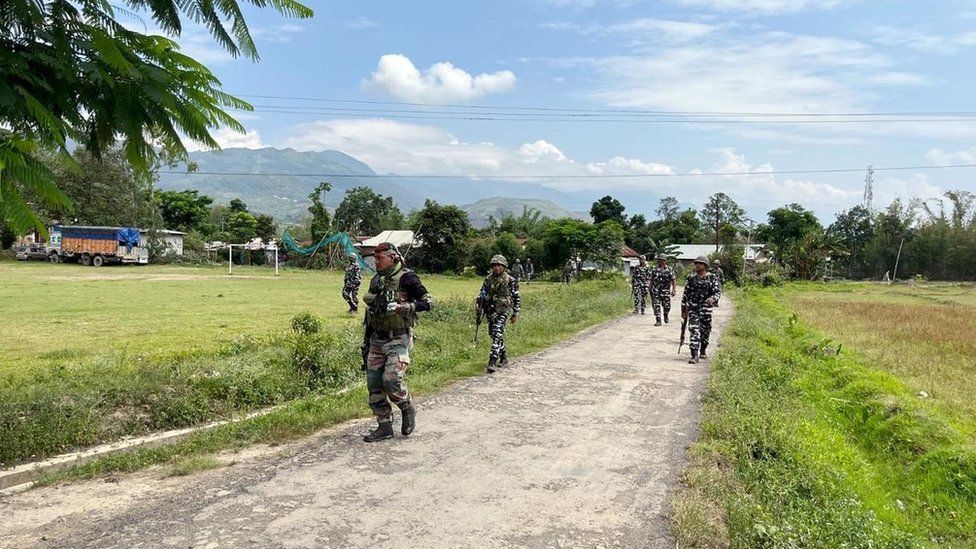
More than half of the estimated 3.3 million people in Manipur are Meiteis. The two main tribal groups that reside in the rolling hills, the Kukis and Nagas, make up about 43% of the population. Most Meiteis practice Hinduism, whereas most Kukis practice Christianity.
Numerous people have died in previous ethnic and religious conflicts in Manipur. Dhiren A Sadokpam, editor of The Frontier Manipur, claims that this conflict is solely based on ethnicity and not religion.
A dispute over affirmative action—specifically, the Kukis' opposition to the Meiteis' demand for tribal status—sparked widespread violence in May. The explosive ethnic violence that has gripped Manipur, however, is not entirely explained by this.
The underlying tensions in the area are the result of a complex interplay of different factors, such as a long-running insurgency, a contentious recent war on drugs, illegal migration from troubled Myanmar through permeable borders, pressure on land, and a lack of employment opportunities, which makes the young susceptible to being enlisted by rebel groups.
According to experts, the alleged decades-long involvement of politicians in the drug trade and the connection between politics and militancy have increased the volatility.
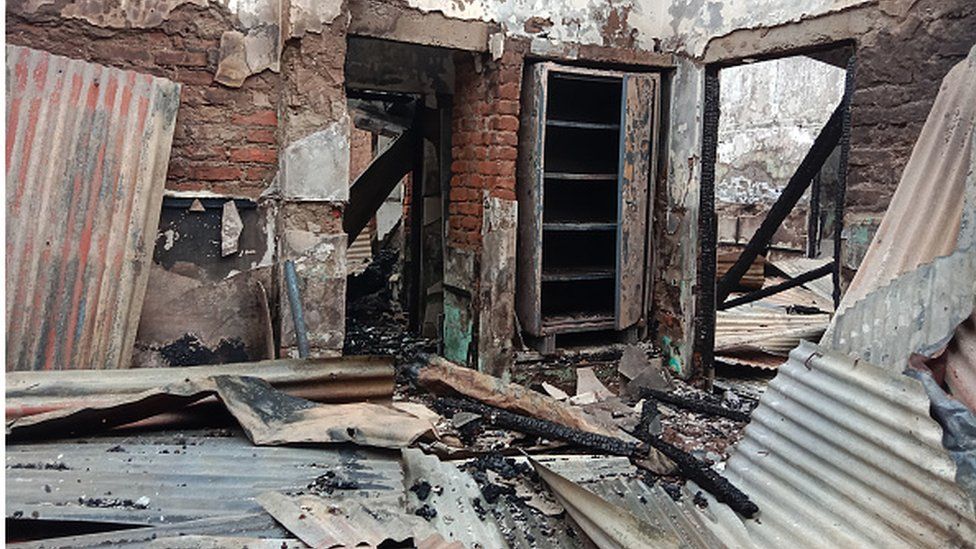
The controversial "war on drugs" campaign has been launched by the Bharatiya Janata Party-led (BJP-led) government of Manipur under the leadership of Meitei Chief Minister N Biren Singh. More than 18,000 acres of poppy fields, the majority of which were in Kuki-populated areas, have allegedly been destroyed by the government since 2017. (Manipur, one of four states in northeastern India that border Myanmar, the country with the second-highest opium production in the world, has struggled with a drug addiction crisis. ).
Mr. Singh's campaign seems to have made things worse between some Kukis and the government. He has forewarned that villages growing poppies—mostly Kuki homelands—would lose their legal status and their access to welfare benefits.
He claimed to have taken extreme measures against "some Kukis who were encroaching everywhere, doing poppy plantations and doing drugs business" in a March interview with a news outlet. The BJP government's "selective targeting" of the Kuki community, according to the community, prompted Kukis to stage large-scale protests in hill districts during the same month. Kuki insurgent groups were charged by Mr. Singh's administration with inciting the populace.
Additionally, Manipur is under a lot of land pressure because only 10% of the state's land—in the valley of Imphal—is home to about 60% of the state's inhabitants. The Meiteis dislike that they and other non-tribal people are prohibited from acquiring land or establishing themselves in the hill districts. Additionally, they want to stop the unrestricted entry of "outsiders," or settlers from nearby nations like Bangladesh and Myanmar, whose numbers they believe have significantly increased over time.
As land ownership exclusively passes down to the eldest son of the village chief due to a Kuki tradition of migration across vast territories, other male family members have begun to establish new villages, increasing land pressure.
This distrust among the locals has been weaponized, claims Ms. Nepram. Small ethnic groups have been arming and training to fight insurgency by Delhi for decades, as well as by those involved in smuggling weapons, drugs, and people. ".
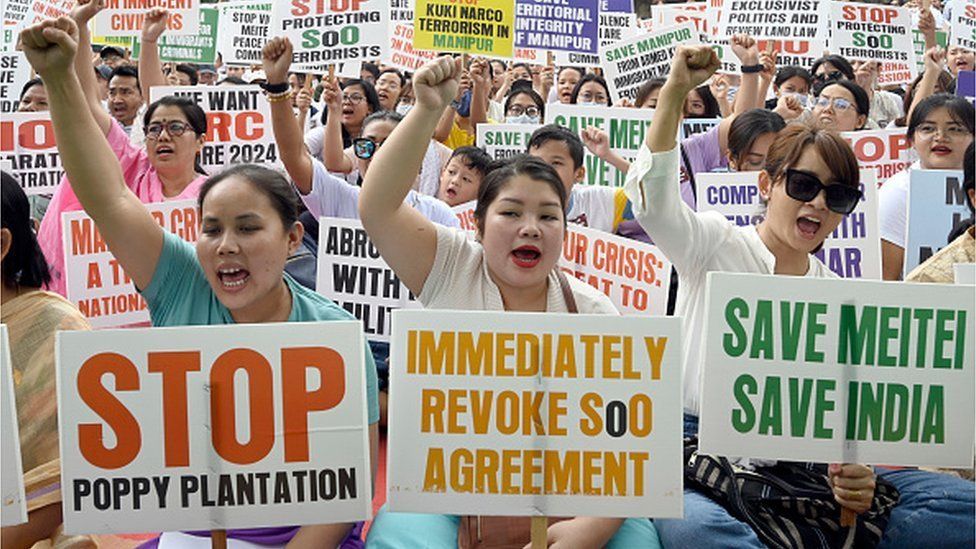
Not just that. Two hills in the state are the subject of a dispute because the Meiteis and Kukis have competing claims to ownership. The Kukis see the land below the hills as their ancestral territory that is being invaded, while the Meiteis view the hills as sacred.
According to Jawaharlal Nehru University's Bhagat Oinam, "over the past five years, there has been growing hostility and anger between the two communities, some related to indigenous faith and practices and others related to encroachment.".
For keeping a deliberate silence about the violence, Prime Minister Narendra Modi has come under fire. In order to develop plans for resolving and managing the situation, the majority of the BJP's ministers and lawmakers have gathered in Delhi, the country's capital.
The Kukis have demanded direct rule from Delhi and a separate administration for their community, demands that could result in retaliation from the Nagas, who could make a related demand. Meiteis and Kukis are now wholly isolated in every way. There won't be a solution unless we have a system we can manage on our own, says Hoinu of the Kuki Women's Human Rights Organization.
Three ministers in Mr. Singh's 10-member cabinet and ten of the 60 elected members of the Manipur assembly are Kukis. The two communities do have some political and administrative ties. Kaybie Chongloi, a journalist for Kuki, claims that their growing alienation from one another appears to be causing them to drift apart.
Legislators and ministers from the ruling party who represent both communities are unable to find common ground because of the profound divide caused by the lack of trust. According to Alex Jamkothang, a resident of the Kuki village who lost his brother in the fighting, "This is not just a civil war; it's also a [fight] against the government.".
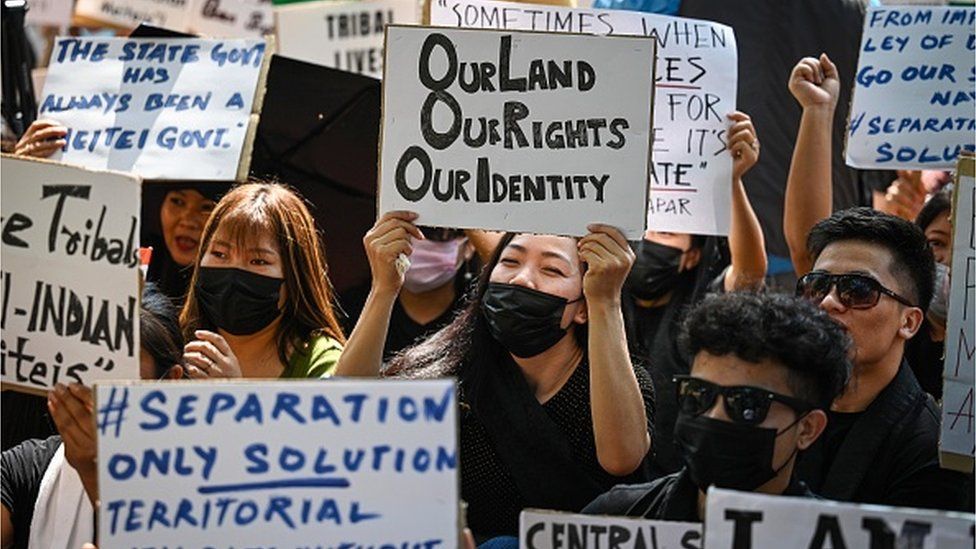
Subir Bhaumik, author of Insurgent Crossfire: North-East India, believes that granting autonomy to tribal groups could help diffuse the situation. He uses the north-eastern state of Tripura as an example, where a third of the population is recognized as belonging to a tribe and who together control two-thirds of the state's land area through an "autonomous district council".
Others, like Ms. Nepram, call for a Truth and Reconciliation Commission that includes panels to determine compensation for homes that were burned down and lives lost during the conflict. Others worry that Manipur will descend into a full-fledged civil war in the absence of a serious effort to engage in "inter-faith, inter-ethnic dialogue". Nothing of the sort is being attempted, according to Mr. Bhaumik.
It is obvious that Manipur has never had a stable peace. According to Mr. Sadokpam, a large portion of the recent peace was not natural. It was what is referred to as an imposed peace in a highly militarized area. There doesn't seem to be any relief in sight at the moment, as it seems as though both sides are preparing for a protracted conflict. People recall Naga and Kuki conflicts that raged for a year before dying down in the early 1990s.
"I don't think this will get resolved anytime soon. According to a senior government official in Imphal who declined to be identified, this will continue until both sides become exhausted or one side becomes dominant. It will take a while to finish this. ".
the YouTube channel for BBC News India. Click . here. to subscribe and watch our explainers, features, and documentaries.

